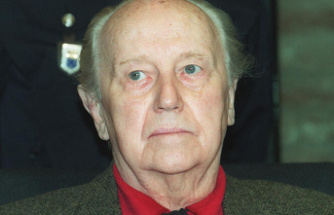NEW YORK, (AP) -- Spotify is learning how to deflect responsibility for the content it posts.
Podcasting is a new industry that has few guidelines for policing misleading or offensive content. Spotify is trying to figure how to keep Joe Rogan's millions upon millions of listeners happy, without making him more hateful and alienating.
Spotify wants to be seen as a platform that is not liable for content created by others and streamed through its service. This position is shared by many social media companies. Experts say this is hard to defend considering Spotify spent $100 million to become "The Joe Rogan Experience"'s sole distributor.
Jennifer Grygiel from Syracuse University, a communications professor and expert on social media, said that they act like platforms. You can't have it all.
Folk-rock singer Neil Young called on Spotify employees to stop listening to the music late Monday night. This was in an effort to increase scrutiny beyond musicians.
India.Arie, musician, revealed on Instagram last week that Rogan had used the N-word repeatedly. He apologized and Spotify pulled many episodes from circulation. Daniel Ek, Spotify's CEO, said that silence is not the solution.
Ek also stated in a late Sunday letter to employees that Spotify is not the publisher for "The Joe Rogan Experiment."
Ek stated, "But perception due our exclusive license implies that otherwise." "So, I have been trying to figure out how this perception fits with our values."
Spotify is the leader in podcasting, just as it is with music streaming. According to Midia Research, Spotify holds 44% of the podcast market share. Apple, Amazon, and Google each have less than half that size.
Podcast platforms have struggled for years to moderate shows broadcast on their platform. They are not following the example of companies like Twitter and Facebook, which attempt to label false or misleading information.
Meta, the company that owns Facebook, has sought out the assistance of journalists, academics and thousands of contract workers to find misinformation. Even so, misinformation about politics and COVID-19 still has a large audience in Facebook groups, WhatsApp messages, and Instagram.
Misinformation has largely been ignored by major podcast companies. They have removed podcasts that are causing controversy by spreading conspiracy theories or violating policies. This has created a mess of shows that were banned from certain tech platforms, but are easily accessible elsewhere.
Alex Jones, conspiracy theorist, is out of Apple, Spotify and YouTube, but not Google Podcasts.
After Dr. Anthony Fauci suggested that he should beheaded, Spotify, YouTube, and Twitter expelled Steve Bannon. You can still listen to Bannon on Apple Podcasts.
Valerie Wirtschafter, a Brookings Institute data analyst who researched misinformation about popular podcasts, stated that podcasts can be difficult to moderate. Podcasts can last anywhere from 20 to 60 minutes and are available in millions of episodes on everything, from cooking to politics to serial killers.
Wirtschafter stated, "This is an unwieldy universe."
Spotify stated that it will remove podcasts that violate its hate speech policies and break laws. After Young's questions, Spotify made public its guidelines and stated that it will add COVID-19 content advisories.
Companies can make a difference by paying content creators as Spotify did with Rogan, and other platforms have done with other prominent influencers. Facebook announced last summer a $1 billion fund to support creators. This is a further push into the "media company" category, even though it attempts to get rid of that label.
Spotify had to make a decision other social media companies were well-acquainted with," stated Jared Schroeder of Southern Methodist University, a First Amendment scholar. They were drawn into war. "I don't know if they'll ever go back."
Rogan is a popular choice for conservative listeners but not the only one. He supported Bernie Sanders for president. He is a popular media figure like Tucker Carlson from Fox News. He often presents himself as someone who asks uncomfortable questions and who is most upset by people who don’t listen to him.
Spotify is caught in the middle of artists and customers, upset enough by Rogan’s language to leave the service. There are many Spotify fans who would declare Rogan a victim to "cancel culture" if they made the costly decision to let him go.
"Ultimately, it comes down to political polarization, and how big tech is caught up with the country's culture Wars," stated Weiai Xu of the University of Massachusetts at Amherst, a communication professor.
Spotify could send a chilling message that it won't be there for them if Rogan isn't back, as well as putting a serious dent in its business plan.
Mark Mulligan, Midia Research's managing director, stated that Spotify could be seen backtracking on Joe Rogan.
Spotify's Ek stated that it could take several months to assess the effect of the controversy on Spotify. Forrester, a market research firm, polled people Feb. 1. They found that most Spotify subscribers did not intend to cancel their subscriptions. However, there were some who thought about it.












